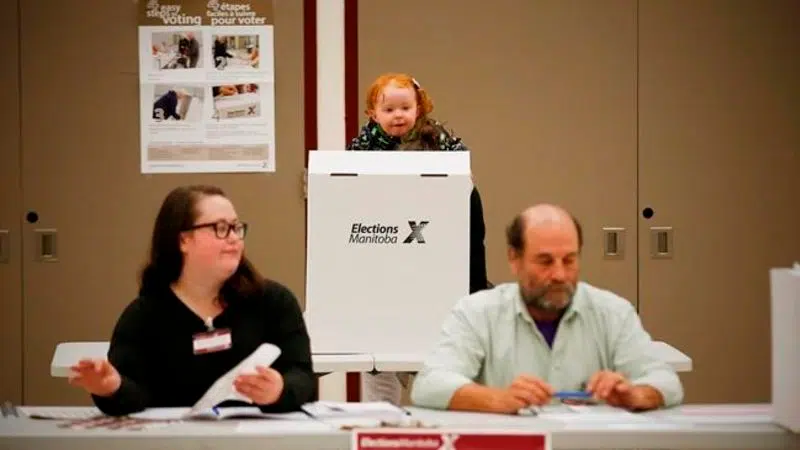
Election day: Manitoba Tories seek 2nd mandate with promise of tax and cost cuts
WINNIPEG — A light drizzle fell across parts of southern Manitoba Tuesday as polls opened for a provincial election that will determine whether the Progressive Conservatives get a second mandate for cost-cutting and tax reductions.
After a four-week summertime campaign that offered few surprises and did not garner much public attention, all parties were working to get their supporters to the polls.
“Our work is done, now it’s up to the people of Manitoba to make their choice,” NDP Leader Wab Kinew said outside the legislature.
Liberal Leader Dougald Lamont said he was spending most of the day getting out the vote, but hoped to take a short break.


